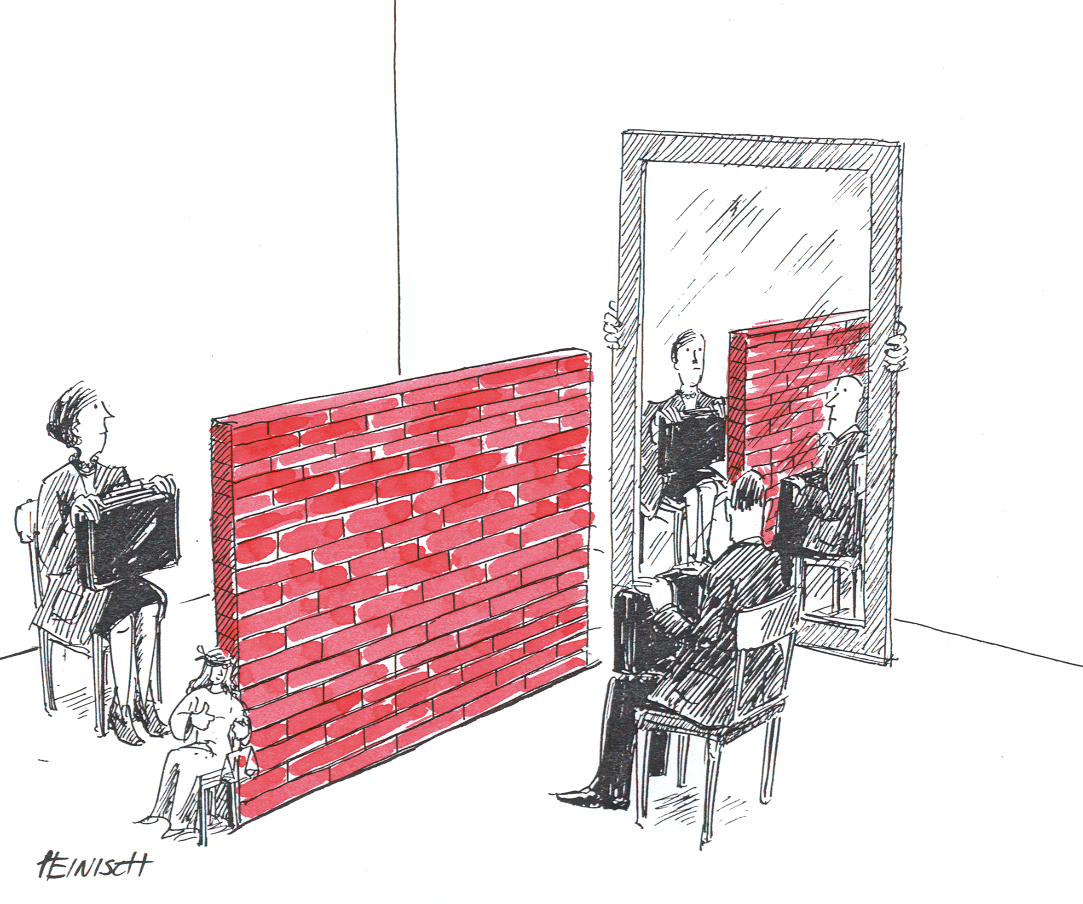Mediation efficient dispute resolution
Everybody is talking about mediation though it still is rather unknown. Some like to see it like a superweapon others prefer degrading it to some soft talks. Both are wrong. But what is it now? Like to know?
Mediation never is a weapon and definitely not small talk. Briefly and in a few words we could say: Mediation in a way is planning the future most constructively through negotiations. Facts are taken into consideration as well as other impacts. Taking those other impacts into consideration already is a crucial difference to other procedures. But yes, of course you are right. Your opponent is nobody one could or should talk with. He probably thinks the same about you. Is that now reason enough to choose a more stupid way of conflict resolution? Let’s first try to understand what mediation exactly is and then, in another step let’s think about usage, usability and how to make it happen.
What is mediation?
Like to hear the legal definition? EU-directive 2008/52/EC OF THE EUROPEAN PARLIAMENT AND OF THE COUNCIL of 21 May 2008 on certain aspects of mediation in civil and commercial matters defines mediation in its section 3 as follows: “‘Mediation’ means a structured process, however named or referred to, whereby two or more parties to a dispute attempt by themselves, on a voluntary basis, to reach an agreement on the settlement of their dispute with the assistance of a mediator. … ‘Mediator’ means any third person who is asked to conduct a mediation in an effective, impartial and competent way, regardless of the denomination or profession of that third person in the Member State concerned and of the way in which the third person has been appointed or requested”. Summarizing this definition sounds like: Mediation is a process where a mediator conducts a mediation. Doesn’t help that much right?
Nevertheless there is some crucial information: Mediation is a procedure. There is a third neutral person not decision taking. Parties should find the result themselves.
How can that be?
Parties for sure have tried already to dispute. Probably they experience escalation. What could another person just by talking do differently? Now it starts with listening. The idea of mediation is to mediate understanding. Thus the most important task the mediator has to deliver is understanding each of the parties as they are. Now mediation leads through several steps of cognition until the solution will become visible. The way of thinking looks a bit different and strange on the first glance. A really very good mediator for example doesn’t have any solution in his mind. He even doesn’t care for that. He is not interested to know the past. Mediation is for creating future.
Mediation is different
Comparing mediation with the court is comparing the incomparable. Because of that mediation is not really an alternative to court procedures – or is it neither?
The picture below might show how a mediator bridges the lost communication of parties.

Dealing with the differences
What is different often needs an own frame to not mismatch a different pair of shoes. Thus mediation was put in an own procedure. Many reason the need for an own procedure for guaranteeing confidentiality. Our integrated mediator’s view is a bit different since we see it caused by strategical reasons mainly. If you are confrontating you will experience that even a coopration offer will be seen a potential attack. Cooperation must be isoltated from confrontation to make it work inner a confrontation. A separated procedure allowing parties to step back into confrontation without losses allows at least to try the coopreation.
In an isolated procedure (room of manoevre) you have the chance to create it according to the needs. If the approach of mediation is different, its frame is different accordingly. Mostly principles are abused to define the mediation. As quoted before it for example is a confidential process where parties appear voluntarily and the mediator is not allowed decision taking. The definition (from the more precised view of integrated mediation) is mixing principles with features. A procedure is defined by features not by its condistions while principles just are conditions to assure the procedure running correctly.
Defining mediation and other procedures by features will lead to slightly different usages. We will come back to that when talking about integrated mediation.
Suitability of mediation
Basically we are on the same road. Mediation is a process where people should talk openly about everything that concerns in order to find solutions not given by others than the parties. When is that a procedure we need for what? Asking about suitability, we just need two conditions making mediation the fitting procedure: One condition is a conflict, some kind of contradiction which is not solvable so easily. The other condition is based on that. If the contradiction (the contrary positions of the parties) are not to be resolved easily (in the way parties have in mind) we maybe need to find another way which is fitting to both of the parties. The need for searching a solution is a crucial feature of mediation where mediation becomes a searching game. Means: Mediation is the appropriate procedure, where parties should look for other solutions where a conflict makes it difficult to find them.
Beware of checklists
There are some checklists available telling people about the suitability of mediation. Those lists often mix personal (9ndividual) and objective criteria. For example: Mediation should not be used when there is an inbalance of power. Or: Mediation should not be used with addicted persons and so on.Honestly: Mediation is able to deal with those cases. The question is if the mediator is able to deal with them. The problem coming out of that in practice is: to find the fitting and competent mediator.
When to choose which kind of mediation?
Yes, there are several ways how to manage a mediation. It depends on the conflict which way will be the best. A professional mediator will advise you to choose the right way. Its a crucial question because the style of course takes influence on the success. Basically we differ:
What makes mediation running?
Mediation is a structured procedure defined by phases. For us (Integrated Mediation) those phases are steps in a cognition process. We will come back to that when explaining Integrated Mediation. Let’s take a look on the phases as they appear normally:
Die Strukturierung ergibt sich aus der Informationsverarbeitung, die den Parteien obliegt aber vom Mediator zu überwachen ist. Das Ergebnis muss zum gewählten Modell passen, aus dem sich die Bearbeitungstiefe ergibt. Es muss nachhaltig sein, was von der Bereitschaft der Parteien abhängt und deren wechselseitiges Verstehen voraussetzt, das der Mediator zu vermitteln hat.
Wie sicher ist das Verfahren?
Ehrlich gesagt: Eine Erfolgsgarantie gibt es nicht. Lösungsinhalte hängen allein vom Willen der Streitenden ab. Ein sicheres Fundament für Erfolg einer Mediation ist, wenn die Parteien bereit sind, sich vertrauensvoll auf die Mediation, den Mediator und sein Können einzulassen. In Portugal besagt ein geflügeltes Wort: „Wer als Einwanderer den Winter übersteht, bleibt für immer dort“. Ähnlich ist die Erfahrung in der Mediation: Wo die Parteien die Hürden, Unabwägbarkeiten und Belastungen auf der Suche nach einer Lösung bewältigen, werden sie auch eine Lösung finden. Eine entscheidende Rolle dabei spielt selbstverständlich die Begleitung durch den Mediator – seine Kompetenz, sich auf den Prozess einlassen zu können, sein Einfühlungsvermögen und sein Verständnis von Mediation. Es ist sicher, dass das Gericht zu einem Ergebnis kommt. Nicht sicher ist es, ob es das Gewollte ist. Das hingegen wäre sicher bei der Mediation, weil nur das Ergebnis zählt, dem beide Parteien zustimmen können.
Was wir für Sie tun können
Zunächst geht es uns darum, korrekt über die Mediation und die damit verbundenen Diestleistungen zu informieren. Sie finden auf dieser Web-Seite eine Menge an Informationen und Fachwissen. Unser Ziel ist die Stärkung der Mediation. Daraus resultiert unsere Freizügigkeit und unser Engagement. Neben aktuellen Nachrichten haben wir auch ein Wiki über Mediation eingerichtet. Wir stellen auch Bücher und Skripte aus der Projektarbeit zur Verfügung. Es gibt Foren, in denen Sie Fragen stellen oder diskutieren können.
Darüber hinaus vermitteln wir Mediatoren und beraten über den korrekten Einsatz. Hier hilft das Mediatorenverzeichnis. Selbstverständlich können Sie auch gerne direkt mit uns in Kontakt treten. In den Regionalgruppen finden Sie Ansprechpartner vor Ort, und das sogar im Ausland.



